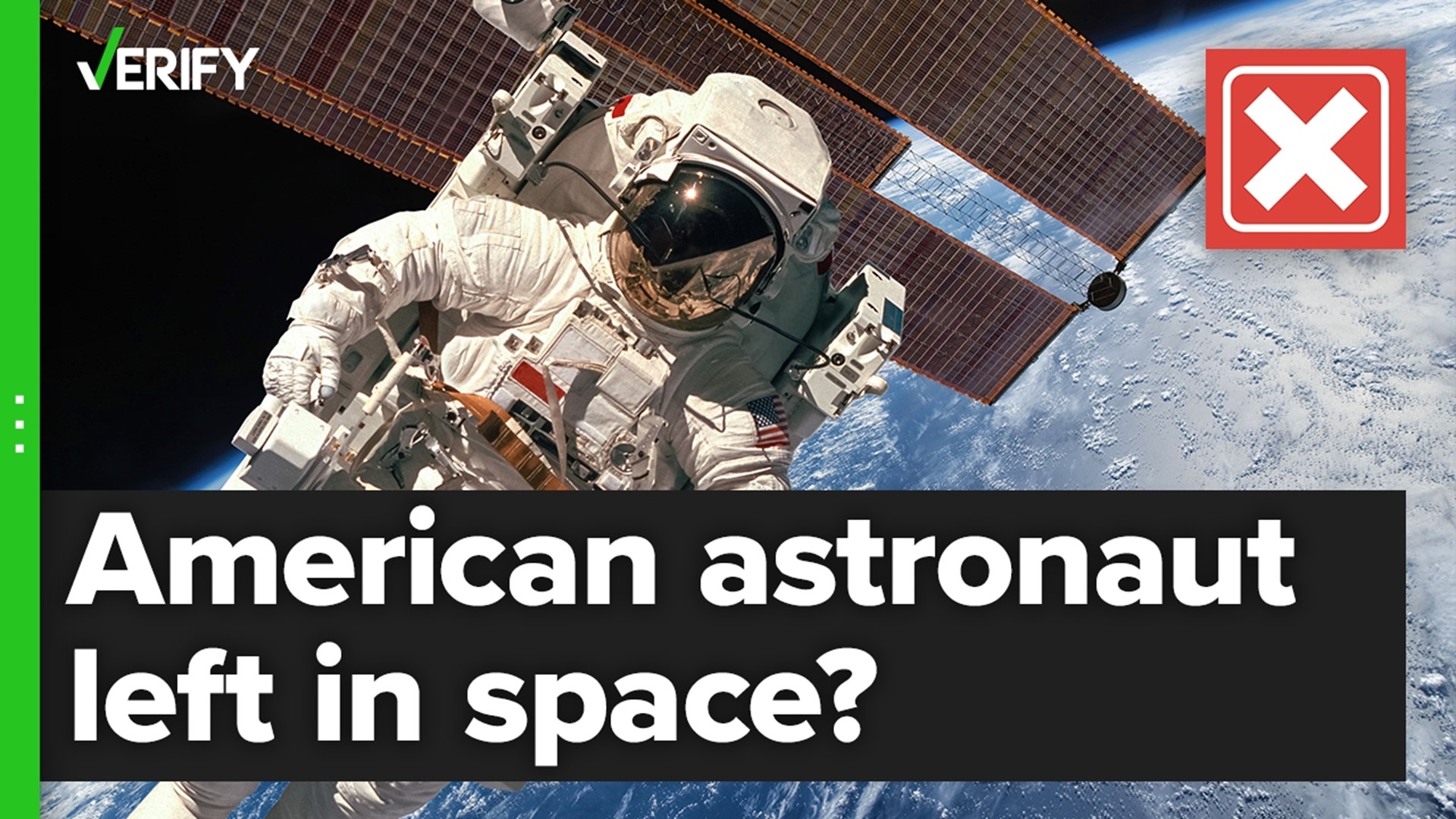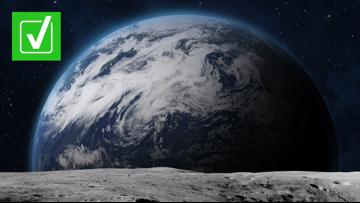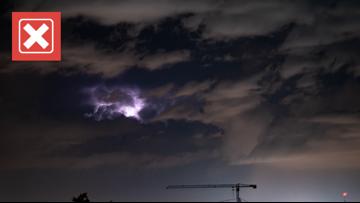Tensions between Russia and the United States have been increasing following Russia’s invasion of Ukraine in late February. Despite those tensions, Russian and American astronauts are continuing to work together aboard the International Space Station.
Whether that cooperation can continue has recently been put into question. Viral tweets claim that Russia threatened to abandon an American astronaut at the International Space Station.
Sandra sent the VERIFY team a question that asked whether it was true that a “U.S. astronaut in space was left behind or will be left behind.”
THE QUESTION
Did Russia leave an American astronaut behind in space?
THE SOURCES
- NASA
- Roscosmos, Russia’s space agency
- Video created by Roscosmos and shared by RIA Novosti, a Russian government news agency
- Kathy Lueders, the lead on NASA’s human spaceflight program
- Dmitry Rogozin, director general of Roscosmos
THE ANSWER
No, an American astronaut was not left in space by Russia. The current crew of the International Space Station leaves March 30, and there are currently no plans to leave anyone behind.
WHAT WE FOUND
On March 5, RIA Novosti, a media network owned by the Russian government, posted a video to its Telegram channel that it said was produced by Roscosmos, the Russian space agency. RIA Novosti said the video “jokingly” depicts Russia withdrawing from the International Space Station (ISS) program.
In the video, the Russian cosmonauts wave goodbye to Mark Vande Hei, an American astronaut on the space station, before detaching the Russian segment of the space station and departing.
But none of that actually happened; the space station remains intact, and neither NASA or Roscosmos have suggested their cooperation will end for the time being.
“We are not getting any indications at a working level that our counterparts are not committed to ongoing operation of the International Space Station,” Kathy Lueders, the lead on NASA’s human spaceflight program, said in a Feb. 28 press briefing. “We as a team are operating just like we were operating three weeks ago.”
A NASA blog posted on March 14 gave updates on a study the two Russians aboard the space station have been conducting, indicating that they remain on the ISS.
A NASA spokesperson confirmed in a statement to VERIFY that there have been no changes or planned changes to the partnership between the two countries.
Dmitry Rogozin, the head of Roscosmos, called the suggestion that Russia would leave an American astronaut behind on the space station “hysterical” in a Telegram post of his own on March 11.
The current space station crew, called Expedition 66, is made up of two Russians, four Americans and a German. The crew came to the space station together in October and will leave at the end of March. Vande Hei, the American astronaut in the video, now holds the record for most consecutive days in space, NASA says.
The video sparked concern, in part, because the space station would lose its ability to function if Russia did separate its segment of the space station as depicted in the video. Although 15 countries provide support to the ISS, the U.S. and Russia own and operate the two foundational segments of the ISS, as established in a 1998 agreement that added Russia to the space station program for its expertise in the field.
“The space station was not designed to be disassembled, and current interdependencies between each segment of the station prevent the U.S. Orbital Segment and Russian Segment from operating independently,” NASA says on its ISS FAQ page. “Attempts to detach the U.S. Orbital Segment and the Russian Segment would encounter major logistical and safety challenges given the multitude of external and internal connections, the need to control spacecraft attitude and altitude, and software interdependency.”
Currently, the space station is still in operation and therefore both the Russian and American segments remain attached together.
All astronauts aboard the space station are scheduled to depart it on a Russian spacecraft, Soyuz MS-19, currently docked at the space station, on March 30.
More from VERIFY: No, you can’t tell if the gas at the pump comes from Russian oil












